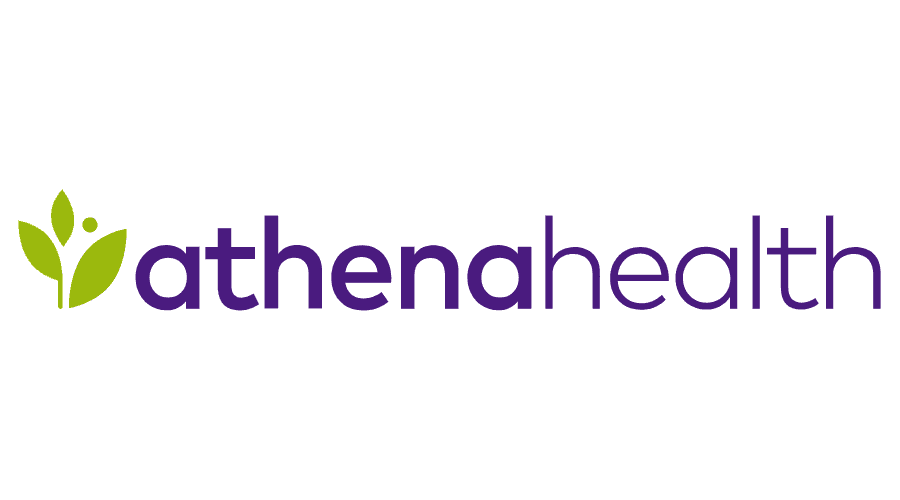athenahealth Medical Software Review
- AthenaOne from athenahealth is a comprehensive medical software suite consisting of an electronic health record (EHR) system, medical practice management software and medical billing tools.
- AthenaOne offers features for patient engagement and document management.
- AthenaOne includes modules for EHR (athenaClinicals), billing and practice management (athenaCollector) and patient engagement (athenaCommunicator).
- This review is for medical practice owners and administrators who need detailed reports from their medical software and are considering athenahealth as an option.
Like all highly rated medical software providers, athenahealth offers extensive patient charting, scheduling, telehealth and e-prescribing tools alongside front-office billing features. What sets the vendor's athenaOne platform apart is its consultation-based approach to practice management and reporting. With filtered reports, as well as key performance indicator (KPI) comparisons with similar practices in athenahealth's massive network, this product is our top pick for practices that are looking for the best medical software with outstanding reporting features.

athenahealth Medical Software
The Verdict
AthenaOne by athenahealth is reliable medical software with especially powerful practice management reporting and consultation driven by athenaNet data.
athenahealth Editor's Score: 90/100
| Customization | 100 |
| Pricing | 90 |
| Consultation | 100 |
| Revenue cycle management | 90 |
| Patient portal | 70 |
Why athenahealth Is Best for Reporting
We recommend athenahealth as the best medical software vendor for reporting because the athenaOne software can generate customizable weekly and monthly reports with seemingly limitless filters. These reports yield data-driven insights that you can use to reshape your operations. Plus, athenaOne regularly compares your reports' KPIs to those of the other 150,000 practices in the athenaNet network.
 Did you know?: In addition to generating highly customizable, filterable reports, athenaOne compares your KPIs to those of similar practices in its massive network.
Did you know?: In addition to generating highly customizable, filterable reports, athenaOne compares your KPIs to those of similar practices in its massive network.
An athenahealth representative will even contact you to schedule a one-on-one consultation if your KPIs fall behind the athenaNet average. In other words, this software provider doesn't only facilitate report generation; it also guides you through making the changes your reports indicate are necessary to achieve the maximum financial performance for your medical practice.
Pros
- AthenaOne's reporting options are endlessly customizable and filterable.
- A representative from athenahealth will reach out to you if your practice needs to improve its KPIs to achieve the performance levels of similar practices.
Cons
- You can't fully outsource your revenue cycle management (RCM) to athenahealth (though the company is taking steps to gradually introduce fully outsourced billing services).
- Athenahealth's platform ranks relatively low on the user-friendliness scale, especially compared to what we found in our review of Kareo, which is our best pick for ease of use.
Usability
We found athenaOne a bit more difficult to use than some of the other medical software we reviewed. Some products on the market felt intuitive from the get-go, but athenahealth's navigation felt disjointed. For example, the company's "patient-centric" model requires you to load a patient's file before you can reach the majority of your tools. This means you must frequently return to the home screen before you can proceed with each task.
 Tip: Read our review of CareCloud, our best pick for practice workflow, to learn about more user-friendly medical software.
Tip: Read our review of CareCloud, our best pick for practice workflow, to learn about more user-friendly medical software.
The good news is that athenahealth offers role-specific training sessions and an extensive library of tutorial videos. These resources can help most users overcome the initial learning curve and reap the benefits of athenaOne's rich data-supported software environment.
Another plus: For patient encounters, athenahealth has numerous customizable templates that you can adjust to fit your notetaking habits. For example, you can give each patient symptom its own box for more logical organization and grouping. We like that each provider can tailor these preferences to create a unique setup to meet their needs.
athenahealth's Features
Here is a quick summary of athenahealth's most important software features, followed by in-depth details about each function:
| Appointment calendar | AthenaOne lets your front-office staff quickly view your practice's calendar through a filterable dashboard. Patients can use the calendar to easily schedule appointments via the patient portal as well. |
| Appointment scheduling | AthenaOne's appointment view displays all patient billing info and includes A/B testing tools that determine the best way to remind patients of their appointments. |
| Billing tools | AthenaCollector offers a wide suite of billing tools for scrubbing medical claims and managing rejections and denials (though you'll still need a medical biller on staff). |
| Clinical notes | AthenaClinicals enables easy notetaking by whatever method you prefer. |
| Customizable reports | Athenahealth's customizable weekly and monthly reports have seemingly countless filters. |
| Electronic orders | Through athenaClinicals, you can order new labs and prescriptions while adding diagnoses. |
| Interoperability | Athenahealth's interoperability tools facilitate the seamless sending of patient data to other providers and vice versa. |
| Medical practice network | AthenaNet comprises 150,000 providers and leverages data from all of them to offer recommendations for optimizing performance. |
| Patient intake | The athenaClinicals patient notes clearly display allergies, medical conditions and medication history alongside a patient's waiting room status, visit history and vitals. |
| Patient portal | AthenaCommunicator offers a patient portal that includes tools for patient appointment scheduling and HIPAA-compliant messaging. |
| Telehealth | Athenahealth's telehealth capabilities are embedded in its EHR, and patients can join appointments without any new software or special devices. |
Appointment Calendar
With this athenaOne feature, your front-office staff can easily see your practice's calendar in daily, weekly or monthly mode. Each appointment shows the patient's name, visit status, appointment type, photo and age.
In our testing, we especially liked the calendar's tools for calculating how many scheduled patients are onsite at your practice, thus helping to monitor for inefficiencies that could be detrimental to the patient experience.
Athenahealth lets you quickly see all scheduled appointments next to the patient's billing info. You can easily book new appointments and register patients as well. Once you book patients, you can set up recurring appointment reminders via email, phone or text. If you're wondering which of these reminder methods is best, the system's A/B testing tools can help you figure out the answer.
Athenahealth's scheduling feature keeps patients in touch with your practice. Before appointments, the software will ask patients to update their information and submit all necessary intake forms. Once a patient checks in, the platform will display their insurance information, copay and deductible. With this information, your front-office staff can have patients pay onsite. For patients who can't pay yet, athenahealth allows you to set up payment plans.
Athenahealth's practice management software (PMS) can also flag inefficiencies in your registration and scheduling processes. The system will use these inefficiencies to suggest changes you should make to improve performance and increase productivity.
In our examination of this software, we noticed that athenahealth emphasizes patient engagement and gives patients tools to get directly involved in their healthcare experiences. For example, patients can request or schedule appointments, review lab results and ask for prescription refills through the patient portal. Patients can also pay you and communicate with providers, nurses and front-office staff via desktop or mobile app.
 Did you know?: Athenahealth can detect gaps in your registration and scheduling processes and advise you on how to improve your workflows.
Did you know?: Athenahealth can detect gaps in your registration and scheduling processes and advise you on how to improve your workflows.
Billing Tools
Athenahealth's billing tool, athenaCollector, focuses on profit maximization. It does have a major drawback, though: Unlike the top medical billing services, athenahealth requires you to keep a medical biller on staff in some cases. This medical biller will handle your charge posting and E&M code creation. That said, athenahealth is gradually moving toward RCM services that include coding and charge posting.
Once your charging and coding are done, athenahealth will review your ICD-10 and CPT codes. It can also file claims; a representative told us the software scrubs all claims it receives within eight seconds of receiving them. These claims typically take no more than three business days to be paid.

Athenahealth reviews all your contacts to ensure your payers are paying properly. If the system finds any gaps in its reviews, it will bill payers quarterly. The vendor also commits to paying out all claims every day.
Clinical Notes
With athenaClinicals, you can record clinical notes directly inside the patient's chart while reviewing their prior data. The patient's vitals, allergies and prescriptions should be available in viewing mode.
If you're not the kind of doctor to type patient notes, athenaClinicals lets you voice-record instead. We found the customizable templates available in athenaClinicals to be an effective way to streamline the patient encounter and document important information. We also like how providers can modify these templates to suit their favorite notetaking approach.
Through this customization, you can place every patient symptom in its own box to keep essential information grouped and organized. And don't worry about your customizations affecting other people in your practice; only you will see them.

Customizable Reports
Reporting is athenahealth's bread and butter. Its customizable weekly and monthly reports have virtually unlimited filters. Through these filters, you have access to endless data-driven insights.
The reporting dashboard shows key metrics, such as payer collections and time in accounts receivable. You can also get reports on front-office data, like no-shows and cancellations. Reports on medical billing are also accessible, including data on your highest-value payers and most frequently used ICD-10 codes.
You can set custom reports to run on a recurring basis and send them to the inboxes of multiple recipients. For example, you could get a weekly or monthly practice cash flow management report that examines medical claims' average days in accounts receivable, overall revenue and recurring expenses.
In your dashboard, your practice's metrics will be compared with athenaNet averages. If your data falls below the baseline metrics for athenahealth's network, the company will contact you for a consultation, offering a line of support and expertise that can help turn a practice around or get a new healthcare business off the ground. Additionally, athenaNet identifies top performers and what sets them apart, thereby helping your practice replicate what has been successful for others.
Electronic Orders
While taking notes in athenaClinicals, you can order new labs, add diagnoses and e-prescribe medications. When an appointment ends, athenaClinicals will ask you to review the diagnosis, prescription and order information.
Interoperability
Among athenahealth's best-known features is its vast set of interoperability tools, which allow you to easily transmit patient data to other providers and vice versa. You can also add incoming data to patients' medical charts with little trouble.
With the software's interoperability tools, your practice will be well equipped to send data to the CDC's Immunization Information Systems database. You'll also remain aligned with the meaningful-use standards that the Medicare and Medicaid Promoting Interoperability Program has set. Even before regulations become a concern, interoperability helps patients who have relocated get started with new doctors.
Patient Portal
Patients can log in to athenahealth's patient portal to request new appointments and prescription refills. They can also update their contact and medical information, which your clinical staff must review and approve upon receiving it. We like that patients can complete intake forms prior to their visit to expedite the check-in process when they arrive.

The patient portal includes a HIPAA-compliant messaging tool that lets patients contact your staff whenever, wherever. You can also ask patients for overdue payments and send them appointment reminders through this tool.
The patient portal automates patient outreach campaigns. This feature might come in handy during flu season, for instance, when you need to quickly identify and reach out to patients who most urgently need their shots. We appreciate that you can customize all messages sent through this tool.
Speaking of customization, you can also brand your patient portal with your practice's logo. This way, when your patients log in, they don't see athenahealth; they see you.
 FYI: Fostering positive patient engagement is important for improving patient satisfaction and encouraging retention.
FYI: Fostering positive patient engagement is important for improving patient satisfaction and encouraging retention.
Telehealth
Athenahealth's telehealth tools are thoroughly embedded in your EHR, so neither you nor your patients will need to familiarize yourselves with new technology before virtual appointments. Patients can use any device to join their telehealth appointments, with no additional software needed. Plus, your telehealth offerings will fully integrate with your medical software suite for easier patient payment collection.
athenahealth Costs
Athenahealth offers two pricing models: percent-based and encounter-based. With the percent-based model, your practice will pay a certain percentage of its monthly collections to use the athenahealth software. A representative told us that this percentage could range from less than to just above 10%, but your exact percentage will be based on your practice's average claim value and volume, billing cycle complexity and other variables.
Although we were unable to obtain price-per-encounter rates, we like that athenahealth charges a collections-based percentage for all of its services. This way, if your practice experiences an unexpected dip in appointment volume, your EHR, PMS and RCM fees decrease in tandem, thus keeping your cash flow more intact.
Athenahealth's prices include the use of athenaOne, the company's platform for patient engagement, RCM, document management and healthcare IT. You won't need to sign any long-term contracts for it, which is a great advantage.
Unfortunately, the vendor's packages don't always eliminate the cost of having a medical biller on staff, because athenahealth doesn't always offer fully outsourced RCM. In cases where fully outsourced RCM isn't part of the picture, your in-house biller would be in constant communication with athenahealth's billing team to handle RCM. You also may be responsible for handling denials and rejections in-house. However, athenahealth is gradually rolling out fully managed RCM services for all of its clients.
athenahealth Setup
Unlike some other medical software vendors, athenahealth doesn't charge extra fees for setup. The implementation process typically takes four to six weeks, but if you need to import data from another platform, it can take substantially longer.
During setup, you'll be paired with a dedicated account representative. You should have no issue reaching this rep throughout the process, and to keep things running smoothly, they'll even remain in touch after you go live.
athenahealth's Customer Service
Athenahealth's customer service is available by phone, though the vendor also maintains a live chat and email inbox for support requests. We really love that the company's customer support team is available 24/7, which wasn't always the case with the other medical software providers we investigated. You can also schedule a meeting directly with your dedicated athenahealth account manager to work through any problems.
athenahealth's Drawbacks
No medical software is perfect. These are two of the biggest downsides of athenahealth:
- It doesn't always offer fully outsourced RCM. Athenahealth's medical billing suite often requires you to keep a medical biller on staff. Other medical software vendors have medical billing services that eliminate the need for coding or billing staff. That might be why the company is gradually moving in that direction. But for now, fully outsourced RCM isn't a guarantee.
- The user experience can be clunky. The inconvenience of having to constantly jump back to the software's homepage to access tools can quickly get annoying. Additionally, athenahealth's interface isn't quite as intuitive as some other platforms we tried.
Methodology
To identify the best medical software, we spent hours researching, analyzing and reviewing different products on the market. This process entailed software demonstrations, phone interviews and customer service calls. We also analyzed customer service reviews available online, including those on the Better Business Bureau website.
For this review, we compared athenahealth to dozens of other medical software solutions – see our review of AdvancedMD and our DrChrono review for examples – and paid close attention to the reporting features available on each platform, to ensure that all of our recommendations included extensive reporting functions. Through that analysis, we determined that athenahealth is the best choice for practices that prioritize reports.
athenahealth FAQs
What does athenahealth do?
Athenahealth primarily offers cloud-based electronic health record and medical practice management products. It also provides some outsourced medical billing services.
How does the athenahealth patient portal work?
Patients can log in to the athenahealth patient portal to contact doctors, schedule appointments, request prescription refills and pay bills. You can customize this portal to display your practice's logo instead of athenahealth's, making the patient's online experience with your office feel more personal.
Who uses athenahealth?
Most practices that use athenahealth have between one and 50 employees. They are typically small or midsize practices that focus on a data-driven approach to healthcare and business.
Overall Value
We recommend athenahealth for ...
- Clinics that need extensive practice management features and financial reports.
- Practices that want one-on-one consultations on how to keep their profits high.
- Small or new practices that may need a collections-based pricing model to lower their medical software costs.
We don't recommend athenahealth for ...
- Practices looking to fully outsource their revenue cycle management.
- Practices with a lot of team members who aren't very tech-savvy.

athenahealth Medical Software
The Verdict
AthenaOne by athenahealth is reliable medical software with especially powerful practice management reporting and consultation driven by athenaNet data.
